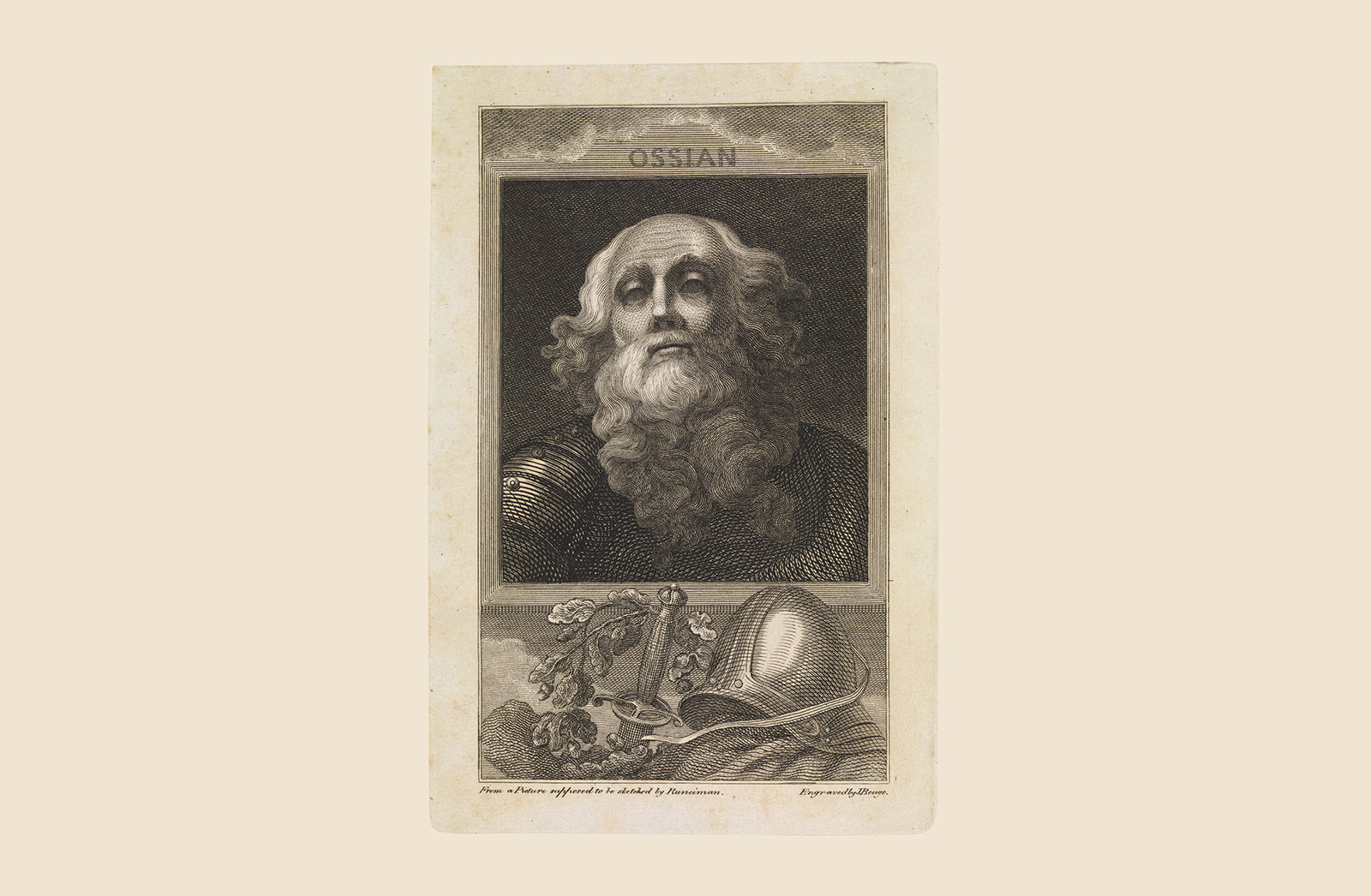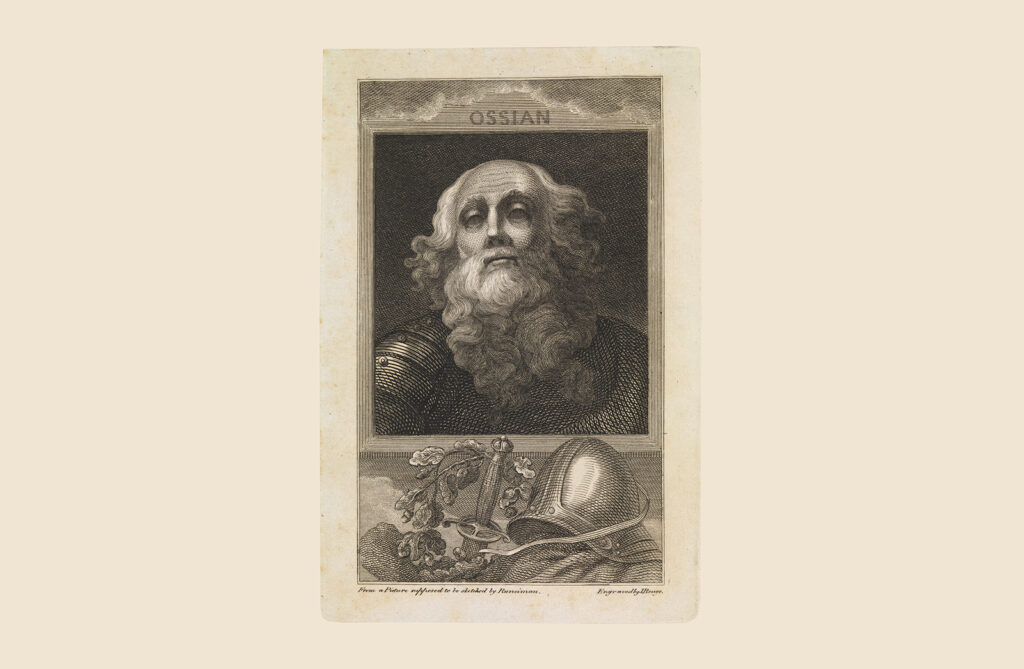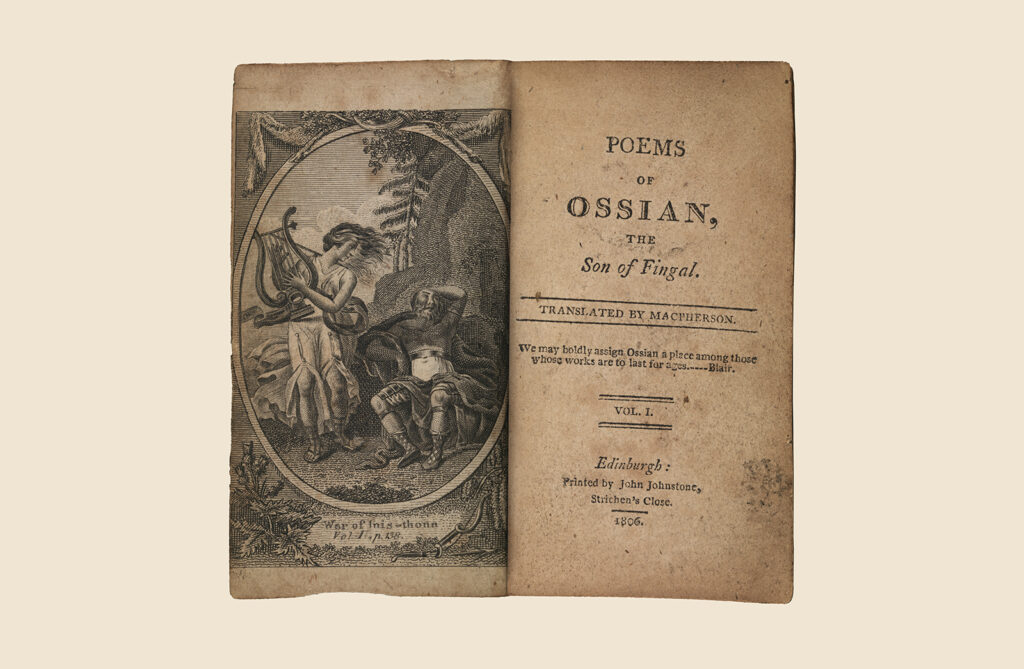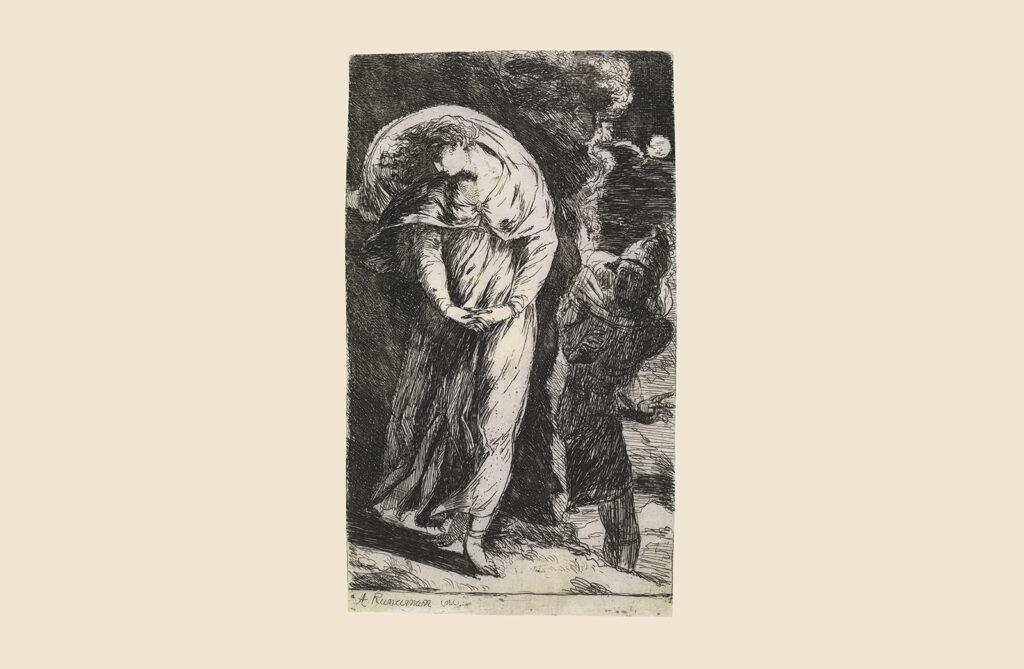James Macpherson (1736-1796)
The Poems of Ossian: Fragments of Ancient Poetry (1760); Fingal (1761 and 1762); Temora (1763); Works of Ossian (1765); Poems of Ossian (1773).
"By the side of a rock on the hill, beneath the aged tree, old Oscian sat on the moss; the last of the race of Fingal. Sightless are his aged eyes; his beard is waving in the wind. Dull through the leafless trees he heard the voice of the north. Sorrow revived in his soul: he began and lamented the dead."
James MacphersonBetween 1760 and 1765, poet and Gaelic scholar James Macpherson went on two tours of the Highlands and solicited the help of several gentlemen in the region to gather what he described as fragments of ancient poetry attributed to the 3rd century warrior-poet Ossian. Although Macpherson was accused of having confected his Gaelic sources by some, his so-called poems of Ossian tapped into a wider cultural trend in Europe combining the primitive majesty of Homer with the moral and aesthetic sensibilities of the neo-classical age.
Ossian’s success at home and abroad profoundly influenced the development of the European romantic movement. At home, it also led to the identification of numerous specific sites across Scotland supposedly associated with the ancient bard. This in turn fuelled the desire of tourists to follow in his footsteps: by the end of the 18th century, Ossian had become a key reference point in the appreciation of Scottish scenery and Gaelic culture.




